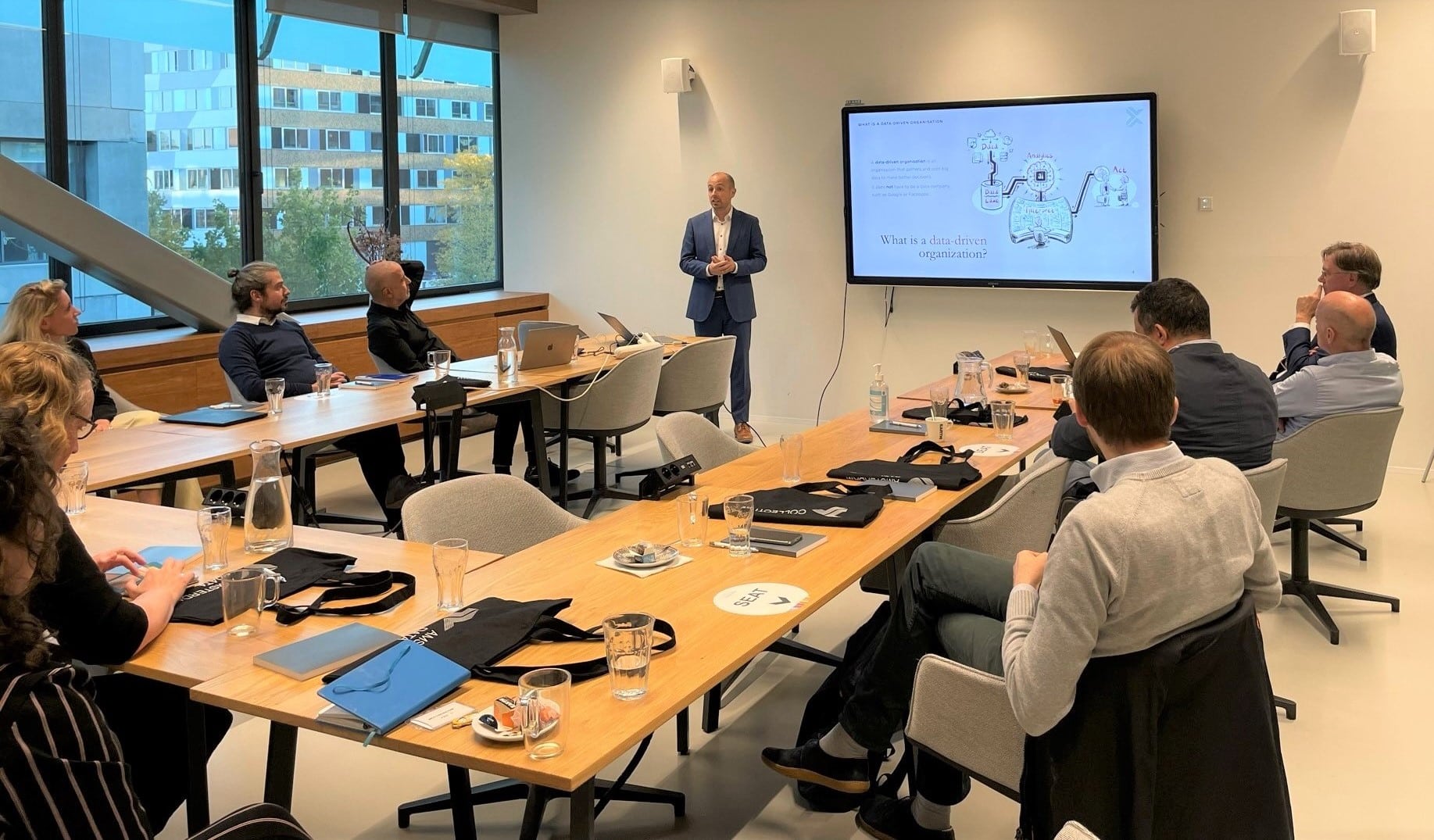Amsterdam Data Collective and the European Leadership University organised a round table discussion about how to create value with data science in the financial sector. Industry experts from ABN AMRO, De Volksbank, ING, Triodos and Credit Europe Bank shared their insights and experience with becoming data-driven.
“The road to improve an organisation’s ability to fully use data is often measured along with data maturity levels”
Data Maturity Levels in Financial Services
It turns out to be difficult to embrace the central transaction of becoming a data-driven organisation in the Financial Sector. Just as Rome was not built in one day, a data transition also is an extensive journey. The road to improve and increase an organisation’s ability to fully use data is often measured along with data maturity levels. During this discussion, we zoomed in on data maturity levels within a large bank. These levels are stages that represent transformation to become data-driven. Each level gives a description at which level data, process, organisation, technology and adoption of an organisation are. At the first level, there is awareness of the possible value, but nobody is acting on it and there are no analytics roles in the organisation. Fully established data science capabilities enable advanced analytics to drive business decision making. And to make a Data Scientist a role ‘like any other’.
It is necessary to guide all subjects evenly through the various maturity levels. This prevents large data gaps between different parts of the organisation.
Organisations start to think of data as a fundamental asset to become more efficient and find new business opportunities. Sometimes the organisation pushes this requirement from the inside because the management decides so or the industry simply requires it. On the other hand, the demand for development comes from operations within the company itself. The risk is that data science in the Financial Sector will not be successfully integrated when a holistic approach is missing. Data Scientists might not understand the strategy or strategists do not see the potential and constraints of data science in the Financial Sector.

“Building a data-driven organisation is only possible with support from the entire organisation“
Data-Driven Organisations
Becoming data-driven is a step-by-step process of continuous improvement and has advantages for all stakeholders. But there must be a clear understanding of how the company is organised. Only then a clear understanding develops of the additional created business value from becoming a data-driven organisation. This business case can then be translated into a pilot. Once the pilot development is successful the implementation can take place.
Building a data-driven organisation is only possible with support from the entire organisation, where people are key. Since not everyone has a background in data science in the Financial Sector, there is an increasing need for re- and up-skilling employees. Everybody within the organisation should be aware of the added value of data usage. That does not mean that everybody should be a Data Scientist. However, the person who inserts data in a system must understand what happens to the data and why it is important.
In conclusion, data can confirm to make a certain decision. Just pursuing the ambition to become data-driven, will not crack the code. To become data-driven the people, processes, technology and organisation must be aligned and work towards the same goal to make data part of the company’s DNA.
How can Amsterdam Data Collective help?
In summary, Amsterdam Data Collective helps organisations become data-driven. If you want to know more about our approach, click here. Feel free to reach out to us for more information, please contact Scott Bush sbush@adc-consulting.com or check our contactpage.
In collaboration with:

What stage is your organisation in on its data-driven journey?
Discover your data maturity stage. Take our Data Maturity Assessment to find out and gain valuable insights into your organisation’s data practices.







